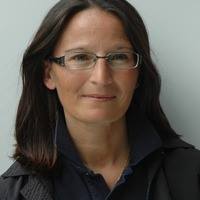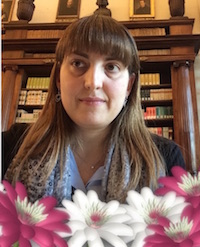Studying at the University of Verona
Here you can find information on the organisational aspects of the Programme, lecture timetables, learning activities and useful contact details for your time at the University, from enrolment to graduation.
Academic calendar
The academic calendar shows the deadlines and scheduled events that are relevant to students, teaching and technical-administrative staff of the University. Public holidays and University closures are also indicated. The academic year normally begins on 1 October each year and ends on 30 September of the following year.
Course calendar
The Academic Calendar sets out the degree programme lecture and exam timetables, as well as the relevant university closure dates..
| Period | From | To |
|---|---|---|
| I semestre (Lingue e letterature straniere) | Sep 30, 2019 | Jan 11, 2020 |
| II semestre (Lingue e letterature straniere) | Feb 17, 2020 | May 30, 2020 |
| Session | From | To |
|---|---|---|
| ESAMI LINGUE - sessione invernale | Jan 13, 2020 | Feb 15, 2020 |
| ESAMI LINGUE - sessione estiva | Jun 3, 2020 | Jul 25, 2020 |
| ESAMI LINGUE - sessione autunnale | Aug 24, 2020 | Sep 19, 2020 |
| Session | From | To |
|---|---|---|
| LAUREE LINGUE - sessione autunnale (a.a. 2018/19) | Nov 4, 2019 | Nov 9, 2019 |
| LAUREE LINGUE - sessione straordinaria (a.a. 2018/19) | Mar 30, 2020 | Apr 4, 2020 |
| LAUREE LINGUE - sessione estiva (a.a. 2019/20) | Jul 6, 2020 | Jul 11, 2020 |
| LAUREE LINGUE - sessione autunnale (a.a. 2019/20) | Nov 2, 2020 | Nov 7, 2020 |
| LAUREE LINGUE - sessione straordinaria (a.a. 2019/20) | Apr 7, 2021 | Apr 13, 2021 |
| Period | From | To |
|---|---|---|
| Festa Ognissanti (Lingue) | Nov 1, 2019 | Nov 1, 2019 |
| Sospensione delle lezioni | Nov 2, 2019 | Nov 2, 2019 |
| Vacanze di Natale (Lingue) | Dec 23, 2019 | Jan 6, 2020 |
| Vacanze di Pasqua (Lingue) | Apr 10, 2020 | Apr 14, 2020 |
| Festa della Liberazione (Lingue) | Apr 25, 2020 | Apr 25, 2020 |
| Festa del Lavoro (Lingue) | May 1, 2020 | May 1, 2020 |
| Sospensione delle lezioni | May 2, 2020 | May 2, 2020 |
| Festa del Santo Patrono (Lingue) | May 21, 2020 | May 21, 2020 |
| Sospensione delle lezioni | May 22, 2020 | May 23, 2020 |
| Festa della Repubblica (Lingue) | Jun 2, 2020 | Jun 2, 2020 |
| Vacanze estive (Lingue) | Aug 10, 2020 | Aug 15, 2020 |
Exam calendar
Exam dates and rounds are managed by the relevant Foreign Languages and Literatures Teaching and Student Services Unit.
To view all the exam sessions available, please use the Exam dashboard on ESSE3.
If you forgot your login details or have problems logging in, please contact the relevant IT HelpDesk, or check the login details recovery web page.
Should you have any doubts or questions, please check the Enrollment FAQs
Academic staff
 angela.albanese@univr.it
angela.albanese@univr.it
 benedetta.binacchi@univr.it
benedetta.binacchi@univr.it
 elisa.destro@univr.it
elisa.destro@univr.it
 alice.fiorentino@univr.it
alice.fiorentino@univr.it
 sara.paolini@univr.it
sara.paolini@univr.it
 alberto.scandola@univr.it
alberto.scandola@univr.it
 massimo.scotti@univr.it
massimo.scotti@univr.it
 silvia.zollo@univr.it
silvia.zollo@univr.it
Study Plan
The Study Plan includes all modules, teaching and learning activities that each student will need to undertake during their time at the University.
Please select your Study Plan based on your enrollment year.
1° Year
| Modules | Credits | TAF | SSD |
|---|
2° Year activated in the A.Y. 2020/2021
| Modules | Credits | TAF | SSD |
|---|
3° Year activated in the A.Y. 2021/2022
| Modules | Credits | TAF | SSD |
|---|
| Modules | Credits | TAF | SSD |
|---|
| Modules | Credits | TAF | SSD |
|---|
| Modules | Credits | TAF | SSD |
|---|
| Modules | Credits | TAF | SSD |
|---|
Legend | Type of training activity (TTA)
TAF (Type of Educational Activity) All courses and activities are classified into different types of educational activities, indicated by a letter.
History of Philosophy (2020/2021)
Teaching code
4S00761
Teacher
Coordinator
Credits
6
Language
Italian
Scientific Disciplinary Sector (SSD)
M-FIL/06 - HISTORY OF PHILOSOPHY
Period
II semestre (Lingue e letterature straniere) dal Feb 15, 2021 al May 29, 2021.
Learning outcomes
The course aims to provide an introduction to the history of philosophy and its terminology, whereas special attention will be paid to the birth of philosophy in Ancient Greece and its (early-)modern developments, which occurred simultaneously with the establishment of vernacular languages. The main focus will be on fostering a critical approach to the most important texts, which will be dealt with from an interdisciplinary perspective open particularly to literature. At the end of the course students will be able to demonstrate the attainment of the following learning objectives: -Knowledge: 1) Knowledge and understanding of the philosophical contexts of the past (historical-cultural contexts, philosophical traditions), with special attention being given to ancient and (early-)modern philosophy; 2) Knowledge and understanding of the theories developed by the major authors of the history of philosophy, with special attention being given to ancient and (early-)modern philosophy, and the relationship between philosophy and literature; 3) Knowledge and understanding of the philosophical lexicon, its developments in the different contexts of vernacular languages and the relevant translation practices. -Skills: 1) Applying knowledge and understanding to the critical reading of and commentary on philosophical texts; this should be demonstrated by the mastery of an appropriate vocabulary; 2) Making autonomous judgments and engaging in independent reasoning; 3) Developing communication skills, also according to the recipient, in the following areas: participating in guided discussions, explaining ideas and defending these through arguments, and possibly delivering short presentations; 4) Enacting autonomous learning skills through the development of an appropriate study and interpretation methodology in relation to both texts and contexts; 5) Developing the ability to connect study outcomes with personal experience, the specific curriculum chosen and today’s world, wherein particular attention will be paid to ability to differentiate between historical circumstances and contexts, as well as to draw comparisons, both methodological and thematic, between philosophy and literature.
Program
PREREQUISITES: None.
COURSE CONTENT: Philosophy and Literature in Dialogue: Ancient Greek Thought and Classical German Philosophy.
The course aims to provide an introduction to the history of philosophy and its terminology, whereas special attention will be paid to its relation with literature. To this end, the main focus will be on two moments in Western thought, in which the interaction between philosophy and literature plays a crucial role, i.e., ancient Greek thought and German philosophy from the Enlightenment to the Idealism. The interdisciplinary nature of the course will lead to address issues regarding rhetorical strategies, linguistic choices and literary genres, and will enable us to compare works, which are traditionally considered as belonging to different canons.
The course will be structured as follows:
1) Introduction to philosophy: etymology and meaning of the expression, historical genesis and periodization, main definitions delivered in the Western tradition;
2) Ancient Greek thought: poetry at the origin of philosophy (Homer, Hesiod, archaic Lyric poets, Presocratics), the ambivalent contribution of Plato (criticism of poetry and parallel usage of literary devices such as dialogue and myth), theatre as a special medium of philosophy (Tragedians, Aristotle);
3) Classical German philosophy: Friedrich Schiller (1759-1805) as a prominent example of both theoretical reflection and concrete practice at the convergence of philosophy and literature (education, main interests, literary and philosophical works, rhetorical strategies).
TEACHING METHODS: The modality of course delivery will depend on the University’s measures against COVID-19. The course will consist of lectures as well as, if possible, discussions guided by the professor and short (optional) papers given by students on topics previously agreed on. The plurality of teaching methods is conceived of as a way of helping students, who will be offered as wide a range of learning paths as possible with a view to enabling them to attain, either face to face or in the context of distance education, both the knowledge- and the skills-related learning outcomes outlined above. Also non-attending students can prepare a short essay.
MANDATORY READING FOR BOTH ATTENDING AND NON-ATTENDING STUDENTS:
1) Learning materials published on e-learning;
2) One text to be chosen among the following:
a) F. Schiller, I masnadieri, ed. by M. D. Ponti, transl. by B. Allason, Einaudi, Torino 1969 (or other reprint) or in F. Schiller, I Masnadieri Don Carlos Maria Stuarda, ed. by E. Groppali, Garzanti, Milano 2000 (1991), pp. 1-167;
b) F. Schiller, Intrigo e amore, ed. by A. Busi, BUR, Milano 2002 (1994);
c) F. Schiller, Don Carlos, ed. by M. C. Foi, Marsilio, Venezia 2004, or in F. Schiller, I Masnadieri Don Carlos Maria Stuarda, ed. by E. Groppali, Garzanti, Milano 2000 (1991), pp. 169-365.
3) L. A. Macor, Il giro fangoso dell’umana destinazione. Friedrich Schiller dall’illuminismo al criticismo, ETS, Pisa 2008.
FURTHER READING (OPTIONAL):
1) E. Berti, Che effetto fa la poesia?, in E. Berti, In principio era la meraviglia. Le grandi questioni della filosofia antica, Laterza, Roma – Bari 2007, pp. 217-240 (or other reprint);
2) G. Pinna, Introduzione a Schiller, Laterza, Roma – Bari 2012;
3) L. A. Macor, The Bankruptcy of Love: Schiller’s Early Ethics, in «Publications of the English Goethe Society», 86 (2017), 1, pp. 29-41.
LEARNING MATERIALS: Additional learning materials will be published on e-learning.
| Author | Title | Publishing house | Year | ISBN | Notes |
|---|---|---|---|---|---|
| F. Schiller | Don Carlos | Marsilio | 2004 | ||
| L. A. Macor | Il giro fangoso dell'umana destinazione. Friedrich Schiller dall'illuminismo al criticismo | ETS | 2008 | ||
| F. Schiller | I masnadieri | Einaudi | 1969 | ||
| F. Schiller | I Masnadieri Don Carlos Maria Stuarda | Garzanti | 2000 | ||
| F. Schiller | Intrigo e amore | BUR | 2002 |
Examination Methods
Oral exam + optional short paper.
The exam aims to assess the attainment of the course’s learning outcomes, and this will be addressed as follows:
1) presentation of one or more topics dealt with in the first two parts of the course (Introduction to philosophy and Ancient Greek thought): students will have to demonstrate possession of basic facts and notions, showing ability to explain them in a systematic manner and follow their diachronic development–this will be achieved by either replying to an open question or commenting on a text figuring among those read and discussed in class (and published online on e-learning, cf. 1 of the Mandatory reading);
2) presentation of one or more philosophical issues arising in the work of Schiller chosen (cf. 2 of the Mandatory reading), possibly profiting from the book indicated in 3 of the Mandatory reading: students will have to demonstrate understanding of the relevant philosophical theses, knowledge of the historical context and, lastly, awareness of the philosophical implications of the literary medium.
Each part of the exam has equal weighting, i.e., 1/2 of the final mark. Students who will have prepared an optional short paper will be exempt from the part of the exam corresponding to the nature of the work already done (depending on whether it addressed topics of the first two parts or the third part of the course). The paper’s assessment will contribute a half of the final total.
No distinction will be made between attending and non-attending students.
Type D and Type F activities
To discover all the teaching activities accredited by the foreign teaching college click here
Career prospects
Module/Programme news
News for students
There you will find information, resources and services useful during your time at the University (Student’s exam record, your study plan on ESSE3, Distance Learning courses, university email account, office forms, administrative procedures, etc.). You can log into MyUnivr with your GIA login details: only in this way will you be able to receive notification of all the notices from your teachers and your secretariat via email and soon also via the Univr app.
Student login and resources
Gestione carriere
Assegnazione tutore
Attività accreditate D/F
Calendario didattico dettagliato
Cambio lingua curriculare
Competenze informatiche
Competenze linguistiche (prima e seconda lingua)
Competenze linguistiche in triennale (terza lingua CFU F)
Compilazione del piano didattico
Corso di Lingua portoghese
Erasmus+ e altre esperienze all'estero
Linguistic training CLA
Presentazione dei corsi di studio e Open day
Graduation
Saperi minimi
Stage e tirocini
Le attività di stage sono finalizzate a far acquisire allo studente una conoscenza diretta in settori di particolare interesse per l’inserimento nel mondo del lavoro e per l’acquisizione di abilità professionali specifiche.
Le attività di stage sono svolte sotto la diretta responsabilità di un singolo docente presso studi professionali, enti della pubblica amministrazione, aziende accreditate dall’Ateneo veronese.
I crediti maturati in seguito ad attività di stage saranno attribuiti secondo quanto disposto nel dettaglio dal “Regolamento d’Ateneo per il riconoscimento dei crediti maturati negli stage universitari” vigente.
- Tutte le informazioni in merito agli stage per futuri studenti sono disponibili alla pagina Stage e tirocini.
- Tutte le informazioni in merito agli stage per studenti iscritti sono pubblicate in MyUnivr - come fare per - stage e tirocini.
- Tutte le informazioni in merito agli stage per le aziende sono disponili alla pagina Stage e tirocini per azienze.
Ulteriori informazioni al seguente link https://www.univr.it/it/i-nostri-servizi/gestione-carriere-studenti-lingue-e-letterature-straniere/stage-e-tirocini-lingue-e-letterature-straniere


 +39 045802 8409
+39 045802 8409
















































